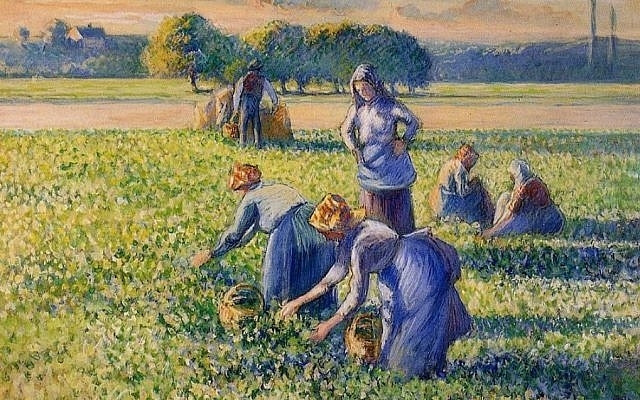Jewish family wins back Pissarro masterpiece looted by Nazis after court ruling
The current owners say they will appeal after buying the painting in good faith at a public auction in New York for $800,000 in 1995.

A French court has ordered the return of a painting by impressionist master Camille Pissarro to the Jewish family looted from them during World War II.
The court ruled in favour of the relatives of Simon Bauer, a wealthy businessman and art collector, whose assets were seized in 1943 by the French Vichy government which collaborated with the Nazis.
That means the current owners of 'La Cueillette des Pois' (Picking Peas), a US couple American couple Bruce and Robbi Toll, will have to hand the masterpiece over, after buying it in New York for $800,000 in 1995.
The couple's lawyer Ron Soffer told French newswire AFP: "It is not Mr Toll, who bought this painting at public auction in 1995, who should pay for the crimes of Vichy."
He added that the Toll's plan to appeal the decision.
The descendants of Bauer saw an opportunity to retrieve the 1887 painting earlier this year when they realised the Tolls lent it to an exhibition at the Marmottan museum in Paris.
The Bauer family launched legal case, and in May a court granted their request to have the masterwork impounded pending a ruling on its on ownership.
Over the last few decades a large number of legal cases have been fought around art and property looted from Jewish owners, which was often later sold onto unsuspecting new owners.
The Tolls, who made their fortune in real estate, said that the verdict will make foreign collectors wary of lending items to French museums because of the risk of legal action.
But the Bauer family argued the Tolls, who are experienced art collectors, should have known that the painting was on a list of looted artworks when they purchased it.
Out of around 650,000 pieces of stolen artworks from Jewish families, about 100,000 were still to be returned in 2009, according to figures released at the Holocaust Era Assets Conference held in the Czech Republic that year.




















